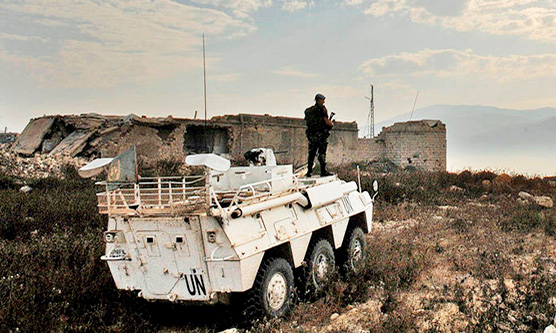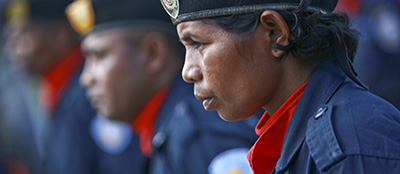There is a substantial body of literature that explores drivers of conflict in the Swat Valley, but assessments of the impact of interventions are more limited. While the drivers of conflict in the Swat Valley have some unique characteristics, it is difficult to separate these from the genesis of militancy in the wider Afghanistan/Pakistan border region given their shared ...» more
Conflict
International humanitarian law and peace processes
There is limited research and no empirical evidence exploring links between the degree to which IHL is respected (or ignored) and the success (or failure) of peace processes. The literature focuses on various related issues, including negotiating with non-state armed groups, the question of why conflict groups may comply with international humanitarian norms, and the need to ...» more
Humanitarian contingency plans for military operations
The majority of the literature seems to focus on humanitarian contingency planning for the invasion of Iraq in 2003, and other older cases such as Kosovo. It is difficult to identify what pre-planning may or may not have been undertaken, as political sensitivities and the tendency for military secrecy around large-scale military operations means that few specific details are ...» more
Transitional justice
It is increasingly recognised that legacies of mass violence and human rights violations can, if left unaddressed, fuel future conflicts. Transitional justice seeks to tackle the legacies of large-scale past abuses, and includes mechanisms such as truth-telling initiatives, criminal prosecutions, reparations processes, cultural interventions, vetting and institutional ...» more
The impact of protracted crises on attitudes and aspirations
The review draws on both academic and grey literature, which reflects the variety of approaches to understanding attitudes and aspirations and how they are formed. Of particular importance are discussions of social norms, networks and capital and how these shape relations between individuals and groups and thus influence the formation and evolution of attitudes and ...» more
Communicating peace agreements
There is limited research on the process of conducting such referendums and how to communicate the contents of peace agreements and constitutions to the electorate. The 1998 referendum in Northern Ireland has received the greatest attention in the literature. Available research focuses on factors that can influence whether a referendum is likely to be won, including discussion ...» more
Libyan political economy
Much has changed in Libya since April 2014. However, Libya remains highly unstable and divided along multiple fracture lines, with a multitude of armed and non-armed groups. Given the fluidity of relations between these groups, literature on the country situation becomes quickly outdated. Libya has three rival claimants to power: a reconvened General National Congress (GNC) ...» more
Stabilisation
What is stabilisation? Stabilisation efforts have become a common policy component of intervention in conflict response throughout the world. In recent years, there have been significant stabilisation interventions in places such as the Western Balkans, Haiti and Mali, among others. The concept of stabilisation, understood as the requirement to meet basic humanitarian and development needs…» more
Ceasefires
All peace agreements need to address the question of the cessation of violence and in most cases this is done through a ceasefire of some kind. Typically, conflict parties will seek to put in place mechanisms to immediately stop the violence and prevent its resurgence. These mechanisms will most often enjoy international support (in terms…» more
The role of online/social media in countering violent extremism in East Africa
There is growing recognition amongst academics and policy makers that de-radicalisation and countering violent extremism programmes can be a more effective way of tackling extremism than purely militaristic approaches. Online and social media are useful in the dissemination of counter narratives in multiple languages, and to reach a broad, geographically diverse audience. The ...» more
Online/social media as a pathway towards violent extremism in East Africa
Findings from a large and growing body of literature consistently highlight the increasingly sophisticated manner in which violent extremist organisations use the Internet and social media. However, there is relatively little empirical research to determine why and how individuals join violent extremist groups such as Al-Shabaab. Evidence is mixed and individual case studies ...» more
Lessons from DDR programmes
While the literature on DDR programmes, their evolution and DDR experiences in individual countries (notably in Africa), is considerable and broadly consistent, there is little on the long-term effectiveness of DDR interventions. DDR programming has evolved significantly over the past few decades in response to changing situations and emerging challenges; from traditional ...» more
Religious leaders and the prevention of electoral violence
There is limited literature specifically on the role of religious leaders in countering electoral and political violence, even less on ways in which to engage leaders in taking on such a role. While highlighting particular initiatives involving religious leaders during electoral cycles, this report also draws on literature that discusses the engagement of religious actors more ...» more
Humanitarian response in middle-income countries
The literature uncovered by this rapid review indicates that there is very little evidence available about the way in which humanitarian response is carried out in middle income countries in comparison to low income contexts (or an amalgamation of the two). Where there have been evaluations of humanitarian response in middle income countries, they have not really focused on ...» more
Women and girls in forced and protracted displacement
There is general consensus in this grey and academic literature on the vulnerabilities faced by women and girls in forced and protracted displacement, although less is known about the opportunities they may have and the long-term impacts. Much of the recent evidence available focuses on displaced populations in Europe and countries neighbouring Syria. There is more of a focus ...» more
Webinar: religion, conflict and violent extremism
On May 11 2016, Dr. Sara Silvestri (City University London), Andrew Glazzard and Martine Zeuthen (RUSI) discussed issues raised in their reading packs on religion and conflict and violent extremism. An audio-only version is available below.
State-society relations and citizenship
State-society relations, citizenship and socio-political cohesion are areas of great importance to statebuilding and peacebuilding and are crucial to an integrated approach. State-society relations are defined by DFID as ‘interactions between state institutions and societal groups to negotiate how public authority is exercised and how it can be influenced by people. They are ...» more
Lessons learned from security-related programming in stabilisation and conflict-affected contexts
The challenging environment that ongoing conflict presents means that evidence based analysis of security sector initiatives is hard to find (Ball and Walker, 2015, p. 3) and the evidence base uncovered by this rapid literature review is small. Interviews with experts suggest that there may be more documented cases and lessons which are not publicly available. Security ...» more
The Central African Republic crisis
Since March 2013, the Central African Republic (CAR) has been experiencing violent sectarian conflict. The conflict initially began between two well-defined rival groups that became increasingly fragmented, with competing agendas and interests. Further, the current transitional government lacks the capacity and political will to enforce any real political reforms. A number ...» more
Political economy of conflicts in Kyrgyzstan since the 2000s
A fundamental finding, widely shared among authors, is that it is not only the national level that matters, but also regional and local ones, in violent and non-violent conflicts. In recent and older history, local conflicts sometime develop into national ones. Other key findings of the literature review include: The root causes of both conflicts are largely similar and ...» more



